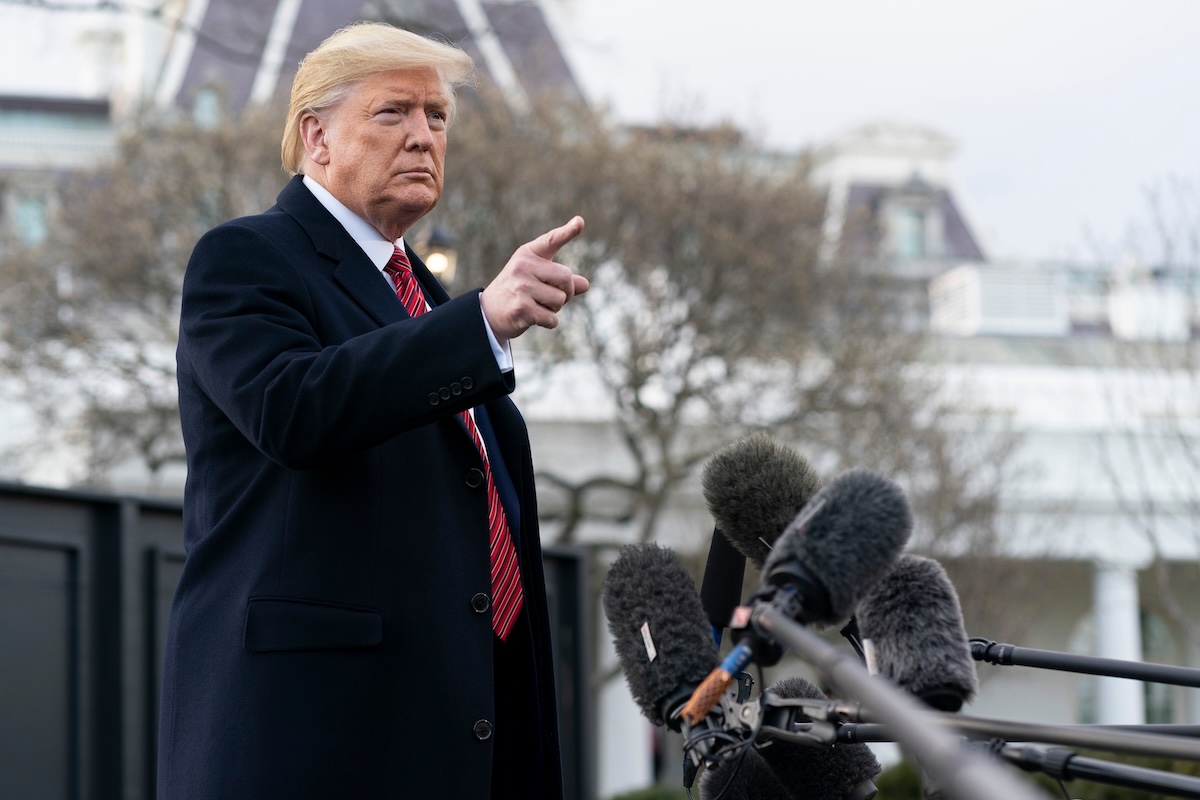
Wall Street woke up Friday to another round of trade war headlines aimed at Europe.
After trade negotiations with the European Union broke down, President Trump said he would recommend a 50% tariff on imports from the bloc.
Stock futures immediately tumbled, with the Dow, S&P 500, and Nasdaq extending losses after the opening bell.
A 50% tariff would be “much higher than what Americans pay to import goods from China,” noted economist Peter Schiff. But he suspects there’s more going on than meets the eye.
“The skeptic in me thinks this is just market manipulation, giving insiders opportunities to trade before the tariffs are called off with a fake win,” Schiff wrote.
Trump just threatened to impose 50% tariffs on imports from Europe, much higher than what Americans pay to import goods from China. The skeptic in me thinks this is just market manipulation, giving insiders opportunities to trade before the tariffs are called off with a fake win.
undefined Peter Schiff (@PeterSchiff) May 23, 2025
His skepticism isn’t unfounded.
Trump’s tariff threats in early April helped trigger one of the worst stock market crashes in decades, with the S&P 500 plunging 10.5% in two days, its fifth-largest two-day loss since 1950.
Just a month later, the White House declared a major win: a 90-day tariff truce with China that sent stocks soaring. The S&P and Nasdaq erased their year-to-date losses in a matter of days.
Critics say that’s the playbook: anufacture a crisis, then declare victory without reversing the damage. Despite the so-called truce, tariffs on Chinese imports remain far above pre-Trump levels.
Trade war isn’t over. Wall Street just pretends it is
While markets have been quick to rally on tariff pauses, economists warn the underlying risk hasn’t gone away.
“It’s not ‘all clear,’” said Macquarie’s David Doyle, who called tariffs a “substantial headwind” for both the economy and equity markets.
His warning comes as investors grow increasingly concerned about renewed inflation driven by tariffs and ballooning deficit spending.
Federal Reserve Governor Christopher Waller recently flagged a “risk-off” attitude among investors toward U.S. assets.
As Investors Observer reported, foreign investors have been dumping U.S. stocks and bonds at near-record pace this year.
Meanwhile, a Bank of America survey from April found global investors are more bearish on U.S. equities than at any point in the past 30 years.
That’s no small concern, considering foreign investors held roughly one-fifth of the U.S. stock market at the start of 2025.
Goldman Sachs analysts say this shift in sentiment poses a serious long-term threat to valuations, especially if Trump’s tariff rhetoric keeps escalating without delivering meaningful policy clarity.
Your email address will not be published. Required fields are markedmarked